José Vildoza: in the bloom of youth
BUENOS AIRES (DIRECTV Liga de las Américas 2019) - “Miraba el cielo justo a tiempo, miraba el cielo justo a tiempo (I looked at the sky just in time, I looked at the sky just in time) …” You hear the
BUENOS AIRES (DIRECTV Liga de las Américas 2019) - “Miraba el cielo justo a tiempo, miraba el cielo justo a tiempo (I looked at the sky just in time, I looked at the sky just in time) …” You hear the unparalleled voice of Indio Solari in “Aquella solitaria vaca cubana”, one of the many legendary songs by Patricio Rey and Redonditos de Ricota. The music escapes through the windows of his red car as he drives into the Polideportivo Roberto Pando parking lot in Boedo, Buenos Aires. At the wheel is José Vildoza, the star of this story. And just like he plays, he talks — loosely and with confidence. Wearing a Guns N’ Roses t-shirt, he tells us which music he prefers to be the soundtrack of his life: “I'm more of a heavy metal than a rock (fan), but lately I've been listening to more Argentine rock. I always listened to Los Redondos and now I'm listening to more Fito Páez, Soda Stereo and Calamaro. I like music a lot. The friends from my youth listened to a lot of heavy metal and since I don’t really understand a lot of English, I started to get more interested in bands from over here. Los Redondos caught my attention and I like them a lot. When I was 8 or 9 years old, we would go to the cybercafé and a friend told me to listen “Toro y Pampa,” by Almafuerte. That song blew my mind, I listened to it every day. Almafuerte are my favorite band. I don't like the quartet. I never did. My group of friends like La Mona Jiménez, and then I listened to them and started to like them. But only La Mona. Anything else that's a quartet bores me. When I'm in Córdoba I go to see La Mona with my friends”.
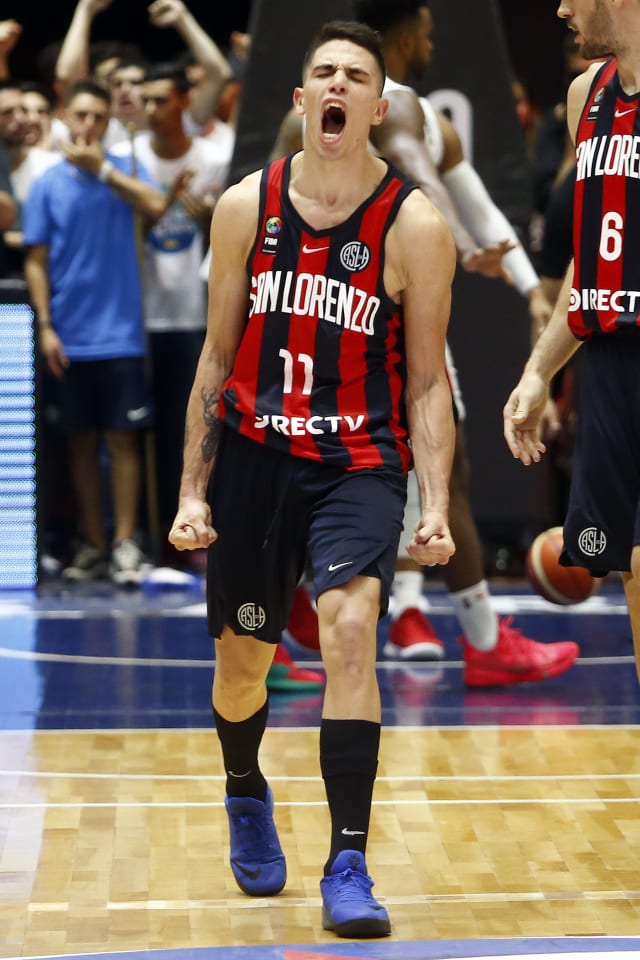
José Vildoza was born in the Maipú neighborhood of the city of Córdoba. When he was 5, he went with some friends to Club Maipú, 200 meters from his home. “Club Maipú isn’t my second home, it’s almost like my home. I have a great sentiment for the club. I miss it because I would spend the whole day there. I grew as a person in the club. There are people that love me very much and I'm still in contact with them. I would always be in the small rims on the side of the court to try to imitate what the bigger players did. I would end my practices at 6 in the afternoon and then the bigger players would arrive. I would play with them as long as they let me do so. In fact, there are players that are still in the first team and that played when I was there. Despite the age difference of more than 10 years, we're friends and we always talk”.
José's sense of belonging in the club that saw his birth as a basketball player is so strong that it marked him for life. Of his recollection of ten-year memories in Club Maipú, where Vildoza spent a greater part of his days, the point guard specifically remembers when he helped to paint the court’s wooden floors. “I would spend the whole day in the club. Once they changed the floor and I was there, so I helped and took a piece of old wood home. I have stayed until all hours in the club and helped clean the court to stay a while more. When I left school at noon, I would go home, have a quick lunch, and go to the club. I would arrive at 12:30, but the person in charge would hand the balls at 4 in the afternoon. With the rest of the guys we would make three-hour lines to pick the best ball, the newest one. Daniel, my mother's husband, worked for some time in the club. Sometimes he would stay cleaning the court and I would stay to play. While he cleaned one side I would throw to the other and we would then switch”.
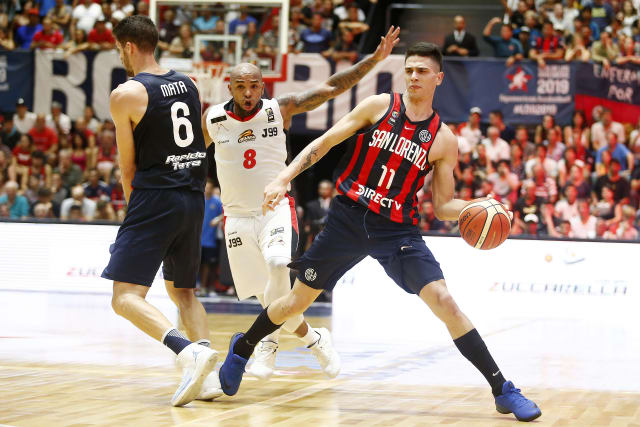
His bond to Maipú still stands. Although Vildoza is now living far away, his heart is always close to his club. And his mother, Ana, represents this very well: “My mother is very dear to the club. She sometimes goes to the games. When I was a boy she worked there as a secretary and she would always lend them a hand because the club always helped me. They would give me a pair of sneakers or waived my fee. Each time they would organize a meal or any activity, she would be the first one there”.
Apart from that unbreakable bond with the club from his childhood and teenage years, José Vildoza had to leave to continue to grow. He was already a part of elite minor league teams when Luis “Mili” Villar appeared in his life. The former Argentine national league member and current player agent saw a brilliant future in the point guard. And he was right. “Mili knew the club's canteen lady and he contacted my mother through her when I was 15. We met after I participated in the U15 national team. He came to me and didn't mention anything about being my representative. It became a friendship. He went to see me play and invited me to eat. Some Saturday afternoons I would be shooting hoops in the club and he would come to throw with me. When that year ended, he commented that I could give a jump forward because there were some clubs interested in me. He said that if I wanted to play in the National League, that was the moment to move to the next level. I went to train to Atenas, to Sionista and to Libertad alongside Juan Pablo Vaulet. When I arrived at Sunchales I went to the house where the recruited players were staying: Matías Aristu, Franco Vieta and Juan Talpone. We hit it off right away, they were very cool guys. We liked the way we had trained, and I thought that it was the right place for me. It wasn't too far from home and I related well to the other guys”, José remembers.
Vildoza debuted in the National League on September 14, 2012, when he was just 16 years of age. Javier Bianchelli was his coach. Fernando Duró arrived next year; precisely the coach Vildoza faced in the recent final of Liga de las Américas. “With Fernando I have a very good relationship. I appreciate him very much because I learned a lot from him and from Pablo Favarel, his assistant. This season I started to play for many minutes, there were even games that I was in the starting five, with just 16 or 17 years. I was fascinated by the way we trained. Pablo would make me work extra hours so that I could keep improving. They left next year, and I felt a bit sad because we spent so much time together that I had formed a beautiful bond with them, especially with Pablo,” says de point guard from Córdoba.
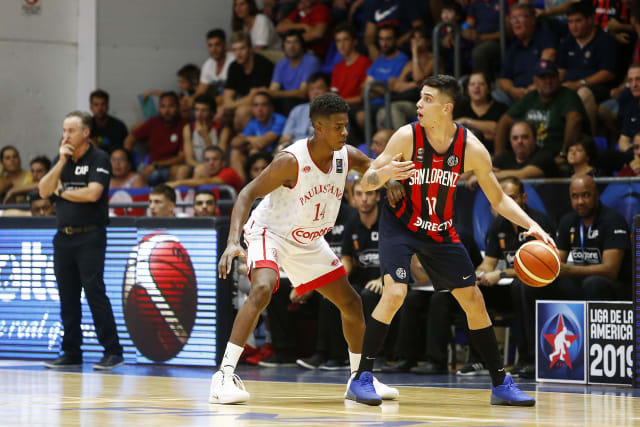
In his fifth season with Libertad de Sunchales, Vildoza was chosen as the best sixth man of the National League. With 16.3 points, 3.1 assists and 2.9 rebounds per game he completed his consecratory season. In fact, with only 21 years of age he received a proposal to be the foreign reinforcement of Trotamundos in the Venezuelan League playoffs. There, another Córdoba native was at the lead: Rubén Magnano. “Mili talked to Rubén and I liked the idea. We made the arrangements and I traveled over there. We lost the two games as locals, by two points, and I don't know what happened after that. From the moment I got there Rubén was exceptionally attentive with me. He would talk to me; he would stay with me. But one day he told me that someone wanted to impose a player on him and that he wouldn’t allow that, so he would leave. I had been there for four days and was a bit thrown off. He wouldn't coach the team anymore, I didn’t play, we lost, and we were eliminated. It was an experience that lasted only a week,” José summarizes.
The next step was leaving the tranquility of Sunchales and change it for the gigantic city of Buenos Aires. Vildoza’s arrival at San Lorenzo tried to reinforce a squad with important names that had already won the National League in two consecutive seasons. But they dreamed of conquering the Americas. And that dream became a reality. The young point guard, as Nicolás Aguirre’s substitute, had a brief participation in the continental competition. Particularly in the Final Four, where he played for 11 minutes in a semi-final that was already decided against Estudiantes de Concordia, and then only 4 minutes against Mogi. For the season that recently crowned San Lorenzo as twice-champions of the Americas, the situation seemed like that of the previous year. However, Aguirre suffered a muscle injury and that Vildoza the opportunity of being a protagonist in the tournament's peak moment. Another Final Four in Boedo this time would make him shine spectacularly. The Córdoba native was key in the triumph against Paulistano in the semi-final game, with 18 points in 34 minutes of play. And in the final against Guaros he spent a lot of time again in the court (33 minutes) and made a fundamental two-pointer when there were 30 seconds left to end the game. This is how Vildoza analyzes his performance: “Without a doubt it was totally different from last year’s. It was very special because I had to be a different kind of protagonist, I had to assume another role. I was very much looking forward to it because it was a great opportunity, a great challenge, and I wanted to be at the height of the moment. I always train to compete against good players, regardless if I must play many minutes or not. I wanted to face Yago, Guillent and Gregory Vargas. I knew I was prepared for it and I felt no pressure at all. I could only think about going in to the court to have fun and have everything go well. We were champions then and, personally, it had a different meaning from the 2018 title.”
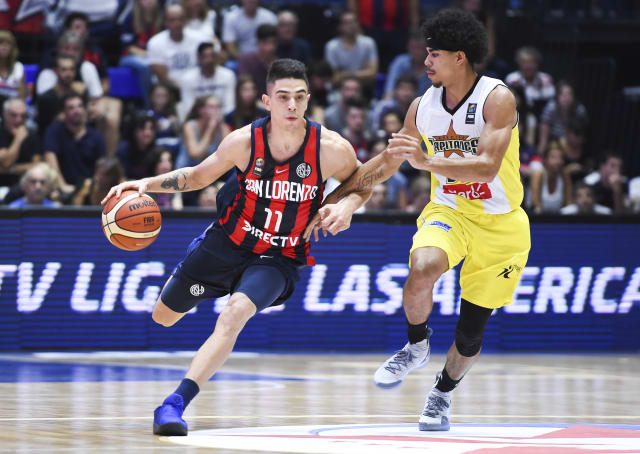
At 23 years of age, José Vildoza is one of the young players that stand out in Argentine basketball. He was already a part of the Argentine national team and each time he has the chance he shines in the Americas’ twice-champion team. For the point guard, young players can be main actors: “It's hard to play many minutes with so many important players by your side like I have in San Lorenzo. But, without a doubt, us young players have shown that we can do it well. At a moment in time I did so in Libertad, Maxi Fjellerup in Bahía, Campazzo in Peñarol, Luca Vildoza in Quilmes... There are many examples. You need to have a little bit of luck for things to go how you expect them to do and then be at the level of the circumstances.”
This limelight occupied by young players in basketball coincides with the moment in which younger generations are making their voices hear in the political and social life in Argentina. In 2018, the nation's Congress issued a vote regarding the voluntary termination of pregnancy. During the debates and in the long evenings in which the voting took place, thousands of people, particularly women, took the streets in manifestations. After the law passed in the Chamber of Representatives and then was overturned by the Senate, the discussions and the debates continued. After a media personality made a comment on social media, Vildoza didn't doubt and shared his point of view in support of the struggle to pass the law. His voice was a message from someone who was empathetic for so many women of his generation.
“If I see something and I think I must respond, I don’t consider what they're going to think of me or who might be reading me. We are public figures, but I consider myself to be a person like any other and I don't have any reasons why I shouldn't stop stating my opinion. Most women are fighting for their rights and I tried to support them from my position. I didn't want to be a main figure, but I did want to say where I stand (on this issue),” said José. His views on current society also include other conflicts: “I'm very much affected by poverty and insecurity. Here in Buenos Aires you walk eight blocks and see 20 people sleeping on the street, with no food. In that sense I try to help giving them something to eat. As for our safety, I get worried, especially when my mother or my girlfriend come to visit.”
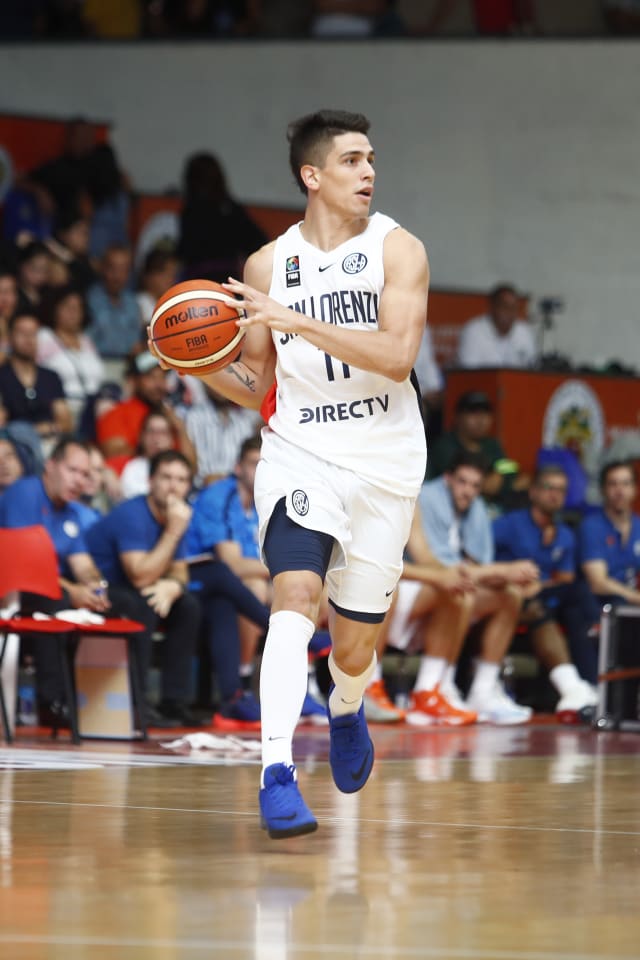
That social reality that Vildoza experiences in Buenos Aires has been his ecosystem for two years now. At first, the Córdoba born player saw it difficult to adapt: “I was used to living in Sunchales, a small city and with an incredible tranquility. When I arrived at Buenos Aires, I saw people everywhere. I don't really like this city’s lifestyle. It bothers me to be 45 minutes in the car to move in short distances. With time, all the same, I became used to it and started to like it a bit. There's a lot to do and it's impossible to get bored. Any day you can go and drink something or go to a mall. I like to go to the movies, go out and eat ice cream, go shopping and go to a concert. I'm waiting for the day when Fito or Calamaro come here to go and see them. What I do the most is stay at home drinking mate, reading a book or playing videogames.”
José Vildoza says farewell with the same smile he had when he arrived. He leaves for the changing rooms to prepare for another training in the sports facilities where San Lorenzo, in the last three years, started to decorate with commemorative pennants of each achieved title. The recent 2019 Liga de las Américas has yet to decorate the ceiling. But it's already in the hearts of the fans and the team. Vildoza doesn't play the music anymore in his car. But he does in his mind. “La melodía quiere llevar lo bueno y lo lindo de estar contento (The melody wants to carry what’s good and beautiful of being happy,” say “Toro and Pampa,” from Almafuerte, the song that has been the soundtrack of a good part of José’s life. And just like this, he's happy.
FIBA
Pablo Cormick